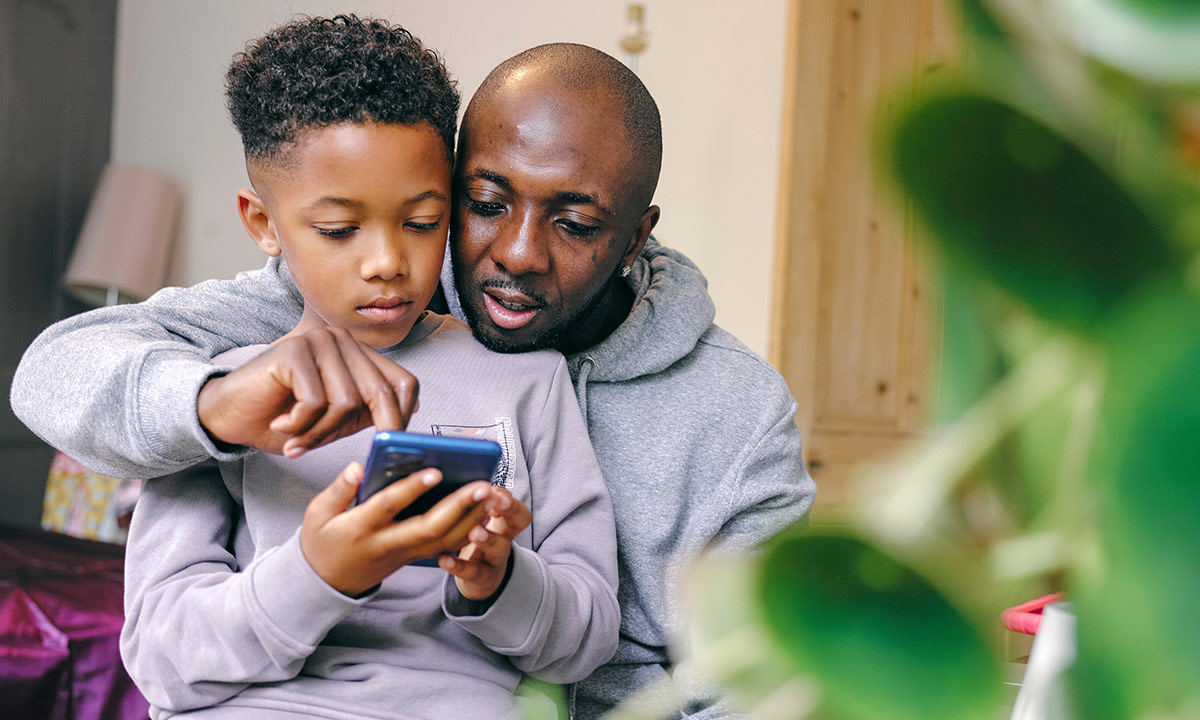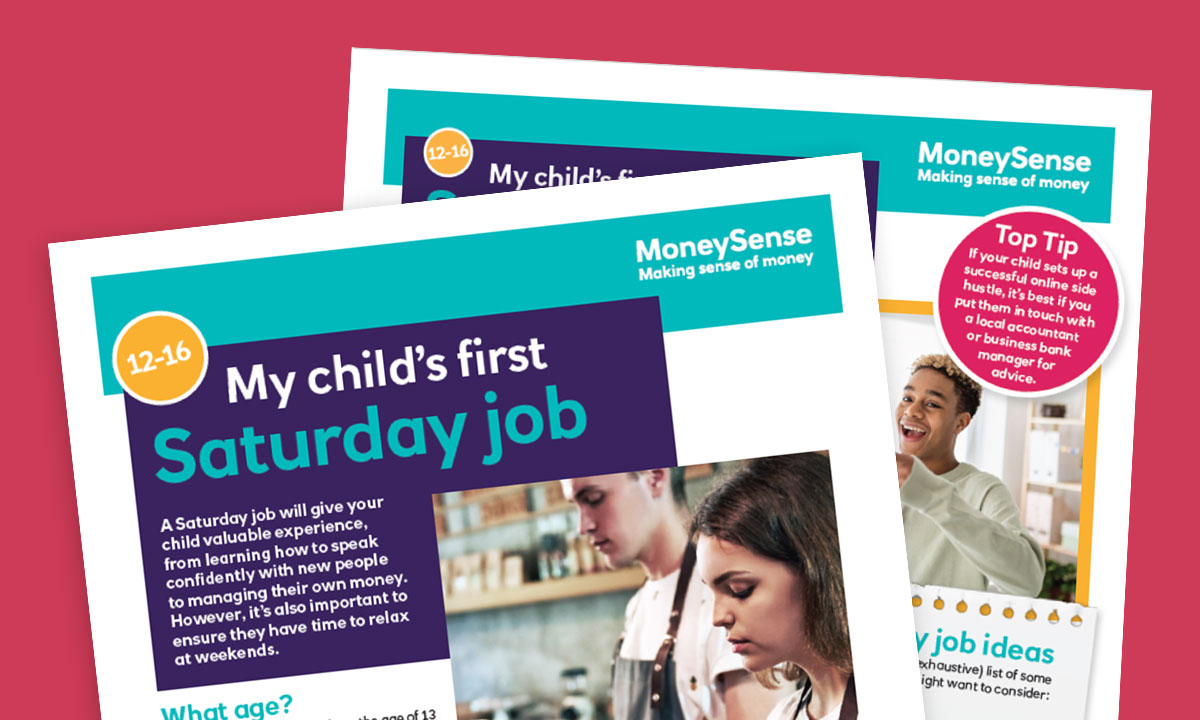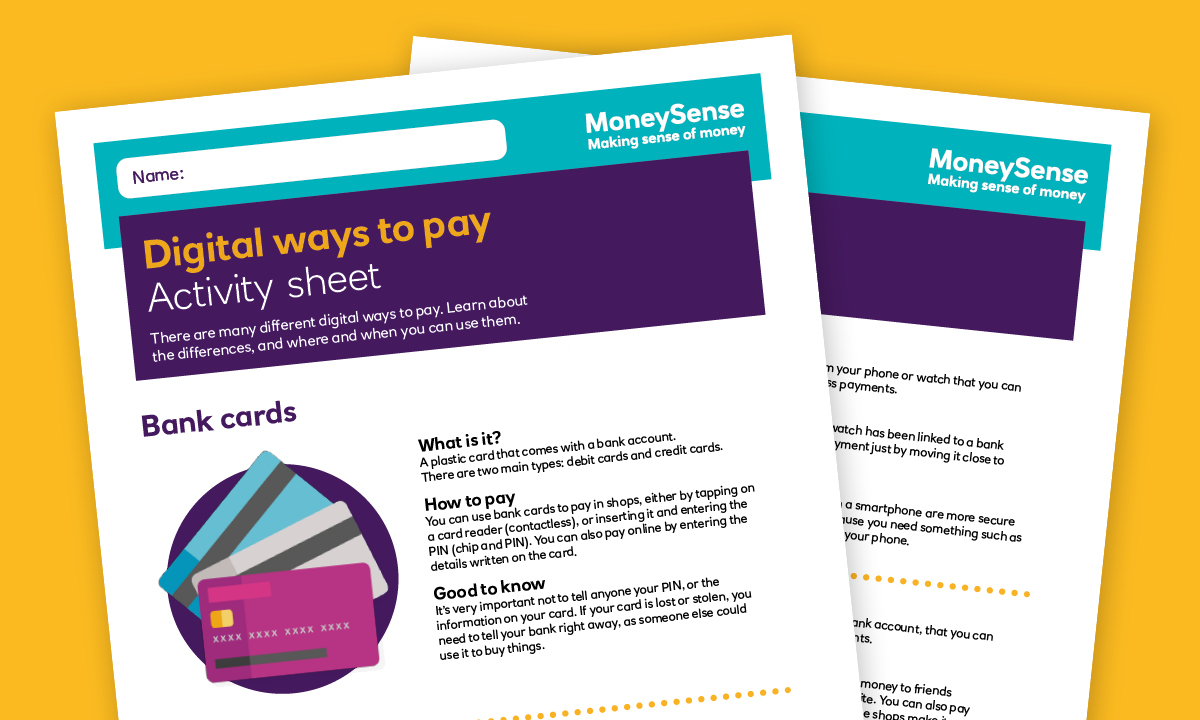Recognising money anxieties in children – and how to help address them
Money worries don’t just impact adults. So how can you support your child when they’re feeling anxious about their – or your – finances? Money writer Clare Seal spoke to Dr Radha Modgil to find out.

Coping with your own financial anxiety during a cost-of-living crisis can seem like a task in itself, but many parents face the added challenge of keeping their children’s money worries at bay. In a recent survey by King’s College London(opens in a new tab), one in three parents said that they thought the cost of living crisis could affect the mental health of their child a great deal, while over 70% thought that it would have at least a small effect. Managing your own feelings about rising costs and a tighter budget alongside ensuring that your children feel safe and secure can feel like an impossible task at times, and research by Action for Children(opens in a new tab) shows that children are picking up on this – almost a third worry about their family having enough money to live comfortably, increasing to 47% for low-income families.
Fortunately, there are some things that parents can do to offer reassurance, without being dishonest or minimising the problem. Here, GP and wellbeing expert Dr Radha Modgil explains how to recognise the signs in your child, and how you can help.
Learning to recognise anxiety and how it manifests in children
If you haven’t noticed your child feeling anxious previously, it might not be immediately obvious what’s bothering them – though you might spot changes in their behaviour. “Anxiety is a normal human emotion,” says Dr Radha. “But if it’s becoming overwhelming for your child in terms of their thoughts and feelings, or if they are struggling to eat, sleep or socialise, there may be a problem that needs to be addressed.” You might also notice your child’s personality change, as anxiety can sometimes be expressed as anger or even manifest as physical aches and pains. Left unaddressed, it’s easy to see how these behavioural changes might begin to affect your child’s quality of life in a negative way.
Coming so soon after the pandemic – a period in which successive lockdowns affected children’s education, personal development and opportunities to socialise, and during which a general anxious mood settled over many of us – it’s little wonder that parents might be more aware of (and concerned about) their child’s emotional state. But that heightened awareness could help us to spot the signs and take action early.
How to spot when your child is feeling anxious about money
Even if you’ve identified that your child is feeling anxious about something, it might not be immediately obvious that money is what’s troubling them. Dr Radha says that there are a few specific things to look out for in your child, depending on their age. “Older children might pretend that they don’t need or want something that their parents want to buy them or be reluctant to share requests for Christmas or birthdays if they have sensed that money is tight or are worrying about it themselves,” she says. “They might also seek to reassure themselves by asking lots of questions about a parent’s job or income, especially if they sense insecurity there.” Alternatively, they might over-compensate and not wish to cause more worry if they feel their parents are stressed about money – they could become withdrawn or reluctant to share other issues that are bothering them.
Parents might also notice children refusing pocket money or offering to pay for things with their own money, which can be a sign that they are taking on the family’s money stress as their own. If you notice any of these signs, it might be an indication that you need to talk to your child.

Talking about money worries with your child
Being open about financial difficulties is something that many people struggle with, so you might find the idea of talking to your child about money uncomfortable. You might also worry about making things worse, especially if you’re stressed about money yourself – but remember that children often pick up on cues such as how you spend, shop and discuss finances with other adults, so talking to them directly will allow you to address things in a reassuring way.
“It’s so important to make space and time to talk about these issues, even if you’re busy,” says Dr Radha. “Talking about things rarely makes them worse, and you don’t have to sit down for a formal conversation – your child might find it easier to discuss what’s bothering them if you approach the subject during another activity or in a more relaxed environment, like during a walk or shared hobby.”
“You could open things up by saying that they seem to be worried about something, and letting them lead the conversation, but gently broach the subject of money if they seem reluctant,” she adds. It’s important to correct any inaccuracies and to give your child age-appropriate information about what’s going on, since it can be easy for children to get the wrong end of the stick, or for worries to spiral and seem worse than they actually are.
Another thing that’s key is to reassert that it’s your responsibility, not your child’s, to ensure that your family stays afloat – particularly for older children. “You might need to say, ‘I’m the parent, it’s my job to keep you safe, and this is part of being an adult,’” says Dr Radha. It’s important to make your child feel safe, and to take away as much of that burden of worry as possible. If it’s appropriate for your child’s age and personality, you could even let them know the positive, practical things you are doing to solve or minimise financial difficulties, like budgeting or changing spending habits.
A great way to conclude any conversation that touches on your child’s money anxieties is by leaving an open line of communication and telling them that they can always come to you with any worries or questions.
Empowering your child to feel more confident about money
For many parents, the challenge of soothing their child’s money anxieties might be compounded by longer-term concerns about their child’s financial future – we all want the best for our children, after all. The good news is that addressing money worries when they are young can help your kids develop a healthier relationship with their finances when they’re older. Answering their questions and educating them about how personal finance works can also make us more aware of our own behaviour around money and how it might be perceived and absorbed by our children. Kids learn more from observing than being told what to do, so it’s important that we address our own money hang-ups if we want to empower them to feel more capable and feel less anxious about it.
For older children who are reaching an age where they start to earn and manage their own money, a more active approach might be appropriate, such as sharing information with them about budgeting, inflation, credit scores and other important personal finance topics. Sharing anecdotes from your own life or using online tools can be helpful. Setting up or exploring the functions of their bank account or banking app together, talking through spending decisions and encouraging them to engage with books like Dosh by Rashmi Sirdeshpande or Cash is Queen by Davinia Tomlinson will give them a solid understanding – and understanding breeds confidence.
We all worry about our children’s wellbeing, particularly if we feel we could be contributing to their anxiety. But by being open, reassuring and solutions-focussed with our children on the topic of money, we can help them to keep those anxieties at bay.
Image credits: Adobe Stock
Find out about all the latest MoneySense articles for parents by following us on Facebook
Related activities
Want your child to find out more for themselves? Here are some activities to share with them.

 Activities:
Activities: 





